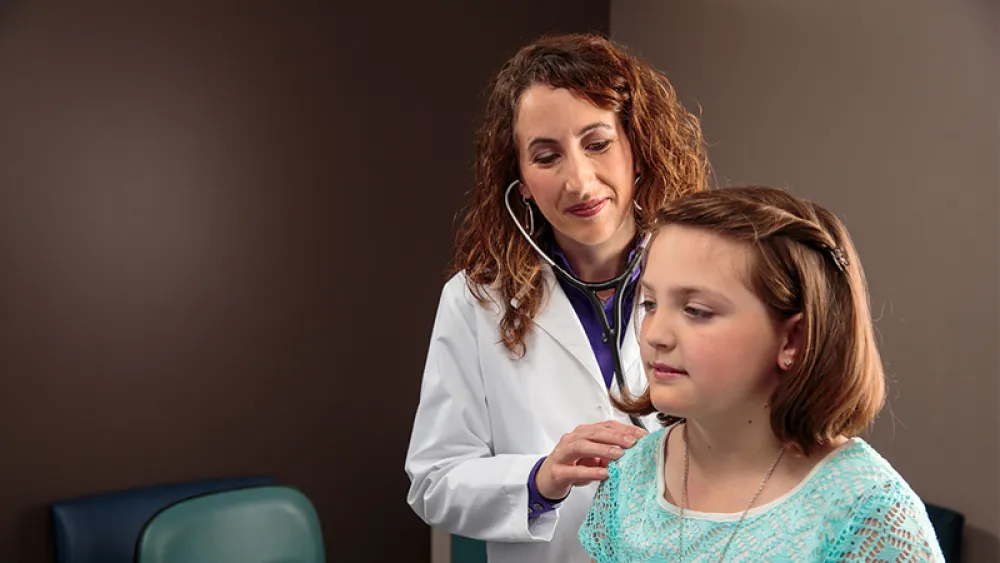Family Health
Physicals an Important Part of your Back-to-School Routine


While it’s something you may not see on your official back-to-school checklist, an annual physical exam may be the most important step in ensuring a healthy, successful start to the school year.
School physicals are a healthy start to school
An annual school physical is a good time to touch base with your child’s health care provider. It gives the provider the chance see how your child is growing and developing, and seeing that their health is being taken care of, while giving you the opportunity to ask questions on how to set your child up for success.
School immunization requirements
Nebraska State Law requires school physical exams before entering kindergarten and seventh grade, as well as all out-of-state transfer students (including foreign exchange students). Both Iowa and Nebraska also require immunization against:
- Diphtheria, Tetanus and Pertussis
- Polio
- Measles, Mumps and Rubella
- Hepatitis B
- Varicella (chickenpox)
In Iowa, a relatively new rule also requires 7th and 12th grade students to have the meningococcal (A, C, W, Y) vaccine.
What to expect during a school physical
Aside from vaccines, annual physicals are an important health checkpoint for doctors. During this exam, the physician will review your child’s:
- Family history
- Personal health during the past year
- Basic eye exam
- Basic hearing test
- Development and growth
- Vaccination history
- Overall physical health
Aside from the physical exam, physicians will also often ask kids about any problems they may be having at home or school and ask how they can help.
Annual sports physicals
Physicals are especially important for students participating in school sports – so much so, most schools require athletes complete a preparticipation physical evaluation (PPE) before competing. The form itself can look very different from school to school, so make sure your young athlete has the correct paperwork by checking with your child’s district.
Besides the standard school physical questions, your physician may ask if you have any of the following:
- Diagnosed medical conditions
- History of heart problems
- Joint pain or tenderness
- Curvature of the spine
- Elevated blood pressure
- Wheezing
- Muscle imbalance
- Problems with reflexes
- For female athletes, the physical asks about menstrual cycle irregularities
A focus on future health
Touching base with your child’s physician on an annual basis also sends an important message to kids about protecting and preserving their good health. If they see a physician once a year and have a good relationship with a health care provider, as they grow your children might be more willing to go back to a provider to bring up their health issues because they feel comfortable doing.



